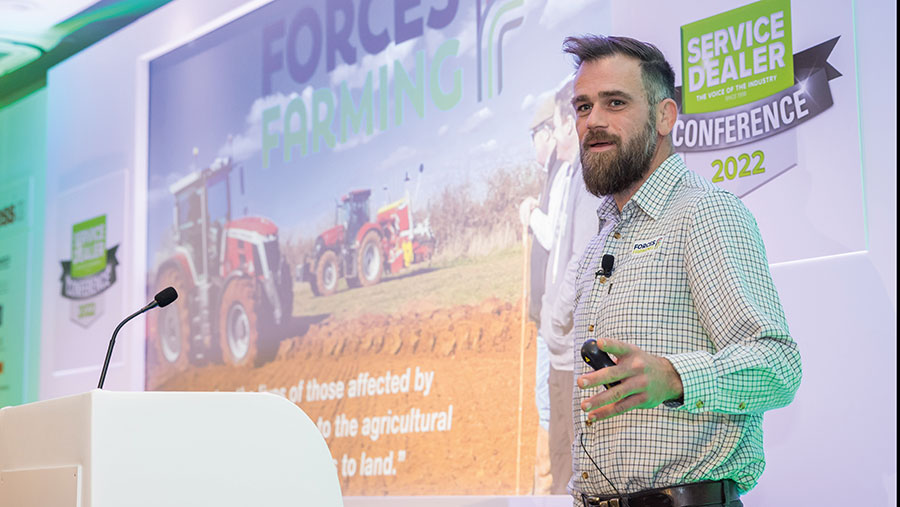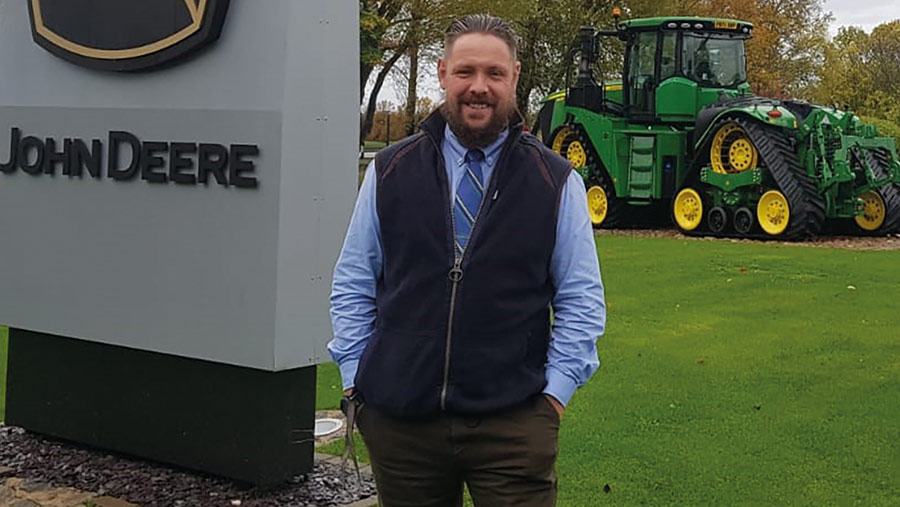Why are army veterans so suited to a career in agriculture?
 © Bumble Dee/Adobe Stock
© Bumble Dee/Adobe Stock Established at the end of 2019, Forces Farming is on a mission to put agricultural careers on the radar of military veterans and service leavers.
After speaking with a friend who was preparing to leave the British Army, founder Jeremy Gibbs discovered that farming was not a career being actively promoted for service leavers.
There was a lack of information and limited opportunity, stumping any efforts to gain an insight into the industry.
See also: Royal Marines to deliver mental health training to Scotland’s ag sector
According to Mr Gibbs, the similarities and crossovers between working in the military and working in agriculture should make it a natural career path.
“You’re a veteran, I’m a farmer – we’re not that different,” he muses. “We both serve the country, the public don’t really understand us, and we’re probably not paid quite what we should be.
“Furthermore, there are not many professions that have to deal with life and death other than farming, the emergency services and the armed forces.”
Skills
Mental and physical resilience, and the ability to complete tasks with the provisions at hand are the obvious resources in the arsenal of many veterans, but their vast skill sets often extend far beyond that.
With the average age of service leavers being just 29, Mr Gibbs says they can offer leadership and a wealth of transferable skills that can both benefit a farm business and provide a perfect foundation for retraining and development into more technical roles.

© Jeremy Gibbs
“A veteran said to me recently that farmers are going through a transition at the minute – a bit like army leavers,” says Mr Gibbs.
“From an outside perspective, it hit the nail on the head and reinforces why you would want to bring someone into your business that has been through a transitional period of change. They are looking ahead of everyone else.”
Process
To help place and retain these new entrants into the industry, Forces Farming offers a four-step process.
Termed “Insight”, “Experience”, “Placement” and “Development”, the steps begin initial talks, farm tours and consultations, through to exploring interests, such as livestock handling and machine operation.
After this, applicants embark on longer-term farm placements, which can last up to 18 months.
But, matching farmers with service leavers is no easy task. Every week, Mr Gibbs receives lots of enquiries from farmers looking to employ army veterans, but says many do not offer a clear career path with training.
“The hardest part is getting some structure. I get a lot of enquiries from farmers looking for someone, but it is sometimes a struggle to find an employer that is looking to actually develop someone.”
This can sometimes lead to difficult conversations, he admits. “The ones that scare me are those who say ‘we’re milking 400 cows – we need new staff every couple of months and can’t find anyone reliable’. Maybe there’s a reason why people aren’t staying.
“Successful placements are with partner farms that have a development and training structure in place, not farms just looking for someone to come in, relief milk and be left on their own after two days. That will push people back out of the industry.”
Currently, Mr Gibbs has nearly 30 military service leavers that are at various stages of the Forces Farming process.
From tanks to tractors…
Veteran Will Foster left the British Army during Covid, and was immediately plunged into uncertainty trying to find an occupation.

© Will Foster
He previously worked at the Armoured Fighting Vehicle technical training school, teaching the next generation of tank operators, and found that a career in agriculture had never been put on his radar.
“As a kid I grew up around animals and harvests and machinery – I always thought farming was a ‘born and bred’ kind of industry where you had to live on a farm, be born into it, or marry into it.”
Mr Foster first came across Forces Farming through LinkedIn, where founder Jeremy Gibbs was able to suggest that, based on the strong engineering foundation he already had, he could easily adapt to an agricultural engineering role.

© Will Foster
“There was a dormant child inside of me that said ‘who doesn’t want to play with tractors?’” said Mr Foster, who is now in his third year as an agricultural engineer at supply company Ben Burgess.
